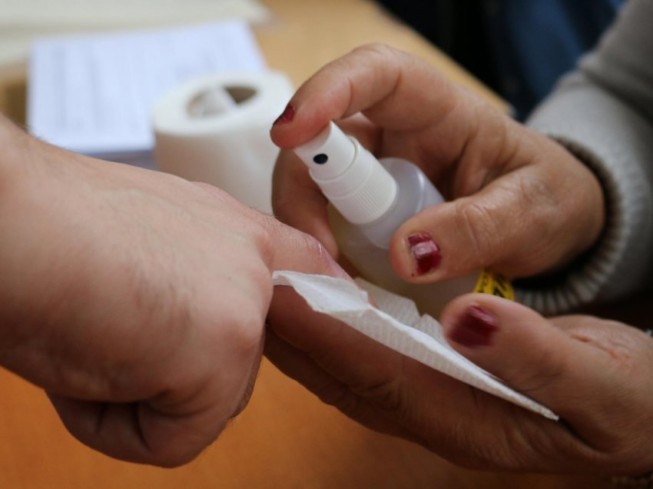Florina Imeri from Prishtina, who this year voted for the first time, says that nobody impacted her decision for whom to vote.
“I was totally free and independent for my choice. I await a change for the good of Kosovo from the elections that are past,” she says.
A research project of the Kosovar Centre for Gender Studies, “How do Women in Kosovo Vote,” discovered that a higher inclusion of women in political life can have an impact in her behavior as a voter as well. This is because they do not see voting as an issue of their fathers`, husbands` or brothers`, but as an important part of their role as women.
Even though for the early elections there were no data regarding the number of voters based on gender, the statistics published by the National Democratic Institute (NDI), showed that in the 2013 elections, women constituted 51% of Kosovo voters.
According to the Central Election Commission of Kosovo (CEC), the number of registered voters in the last elections was 1,888,059, whereas 118,448 of them were new voters who had turned 18 after the elections of 2014. The participation in the last elections (2014) was 41,30% of the population participated in the last elections
According to the law for Parliamentary Elections in Kosovo, the voters have the right of free vote, general, equal, transparent and secret, in concordance with the rules of the Law for Mayoral Elections in the Republic of Kosovo and the rules of CEC.
Liza Gashi, head of the NGO “Germin,” thinks that women are interested in political issues.
“I think that girls and women in general have expressed their interest for political issues in our country. However, very few women and girls are included in the leading structures of political parties because here still exists the patriarchal mentality in our political parties,” she emphasizes.
In a short survey done by KosovaLive where 100 girls aged 18-30 participated, results showed that 87% of them had voted in the last elections. The surveyed also explained that they were free on their choice and they were not impacted by others.
The education of more women compared to past years, their awareness that they can make a change, and promises for gender equality, according to the women surveyed, are only some of the reasons that impacted the participation and the free choice of women in the process of voting.
One of the surveyed women explains that compared to past years, through voting, women will play an important role in changing the political situation in Kosovo.
“Earlier women did not have the rights and the freedom they have now. They are more educated and more aware of their rights, thus the change will be achieved through their vote,” she says.
Some NGOs in Kosovo have been engaged in increasing the number of women voters in Kosovo.
Iliriana Gashi, director of the NGO “Kosova Women 4 Women,” says that this organization has worked on making women aware of their right to vote.
“The organization has a module for decision taking which is part of the curricula of the one-year program. This module lasts 3 months. One of the sessions of this module is the right to vote, voting and the right not to be impacted while voting and even not tell anyone who you voted for if you do not wish to do so. As in all our trainings, apart from the theoretical part, we offer the practical part as well, where we improvise creating a political party, pre-elective campaign and voting,” she emphasizes.
Gashi also says that women are quite interested in political issues since the impact of the politics in everyday life is huge.
“Maybe it is because of the recent past of Kosovo, when people had to discuss politics whether they wanted to or not and participated in the peaceful or armed resistance. I have an impression that a kind of inertia is being carried even in these days. The situation in general is being over politicized and I would like as soon as possible for there be more work and welfare for the whole population,” Gashi says.
The survey done by KosovaLive showed that 25% of the surveyed are very interested in political issues, 43% of them are averagely interested, around 20% have a little interest in politics, and 12% of them are not interested at all.
One of the surveyed says that seeking gender equality has caused women to become more active in politics.
Arbresha Berisha










